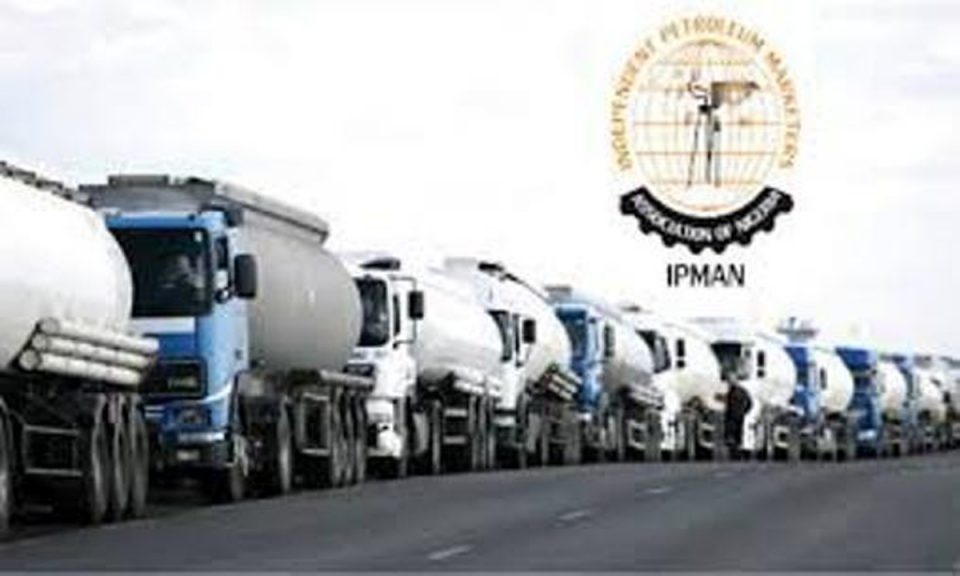The Independent Petroleum Marketers Association of Nigeria (IPMAN) has said there are no plans to stop the distribution of petroleum products as a result of the ongoing EndSARS protests.
Mr Chinedu Anyaso, Chairman of IPMAN, Enugu Depot Community disclosed this in Awka on Monday.
Anyaso, who was reacting to rumours on the social media said neither the leadership of the association nor Nigerian Union of Petroleum and Natural Gas Workers, NUPENG (NUPENG) met to discuss or issue such notice.
“We are aware of the rumour that IPMAN and NUPENG will stop lifting products but I can assure you that there is no iota of truth in it.
He said it was an unpatriotic attempt to drag marketers in the protest and urged petroleum products buyers and consumers not to engage in a form of panic buying or hoarding.
Anyaso said while marketers identify with the legitimate demands of the protesting youths it had no plans to hurt the economy by stopping operations.
“Our members within the zone are advised to open their outlets and serve the public normally, nobody should hoard products, there are no plans to stop distribution of products by IPMAN.
“To our customers we call on them not to engage in any form panic buying,” he said.
Anayaso commended the youths in the zone for their peaceful conduct and urged them to have the interest of all at heart.
The situation in Awka on Monday reports that filling stations in the capital town were open for business while customers bought products seamlessly.
Inflation: Economist Urges FG On Policies To Stabilise Prices Of Essential Items
A developmental economist, Dr Benjamin Omoniyi has urged government to introduce policies that will stabilise the prices of essential items as a macroeconomic objective of the nation to address inflationary pressures.
Omoniyi, a lecturer, Economics Department, Joseph Ayo Babalola University, Arakeji, Osun, made the call in an interview with the News Agency of Nigeria (NAN) on Monday.
The News Agency of Nigeria (NAN) reports that September inflation index by the National Bureau of Statistics (NBS), which stood at 13. 71 per cent was a 0.49 per cent increase from 13. 22 per cent in August.
Food inflation stood at 16.66 per cent in September from 16.00 per cent in August and core inflation was at 10.58 per cent in September from 10.52 per cent in August.
Omoniyi urged government on strengthening the Naira, maintaining price index and engaging policies to reduce inflation rate to single digit.
He said the inflation figure, which was in double digit would have negative impact on citizens, who for some months were without income due to the effects COVID-19 pandemic.
He said this resulted in a reduction in purchasing power and declining welfare for citizens.
“In the case of purchasing power improvement, it is evident that the lockdown caused by COVID-19 pandemic has adversely affected the welfare of everyone in Nigeria, especially the greatest proportion of the population who are the poor.
“This arises via high prices of both serial and finished products thereby reducing the purchasing power of the Nigerian naira, which subsequently led to increase cost of living thereby creating hardship on the people.
“To ameliorate this problem, the government should increase government purchases and reduce taxes impositions so that improved level of disposable income is guaranteed in the post-COVID-19 period,” he said.
Omoniyi said that the increase in the rate of inflation could affect the prices of manufactured products negatively, thereby reducing the demand for them.
He said this would further disturb Nigeria’s industrialisation process by making manufactured products more expensive such that the citizens would prefer to patronise foreign products against locally produced ones.
“This would enable local manufacturing firms because high prices will prevent them from competing with foreign firms.
“It is also worthy to note that high domestic price may simply turn Nigerians products to became unacceptable abroad.
“This may eventually lower foreign exchange earning capacity of Nigeria,” he said.
The economist stressed the need to seek ways to increase the purchasing power of citizens by the creation of policies that would engender increased disposable income.
Omoniyi recommended that this could be achieved through tax cut with its attendant multiplier effects on consumer’s finances.
He urged government to engage measures that would lead to a decrease in the cost of communication and transportation via improved rail system.
“This may lead transport people to lower their cost and move into the interior part of Nigeria to move agricultural products from production areas to where they are needed.
“This will improve farm income thereby enhancing purchasing capacities of rural areas.
“Furthermore, government may also introduce policies of improved rural infrastructure to improve living conditions of the people.
“Additionally, government may increase her expenditure through government purchases to enable the public have access to public goods and improved businesses,” he said.




